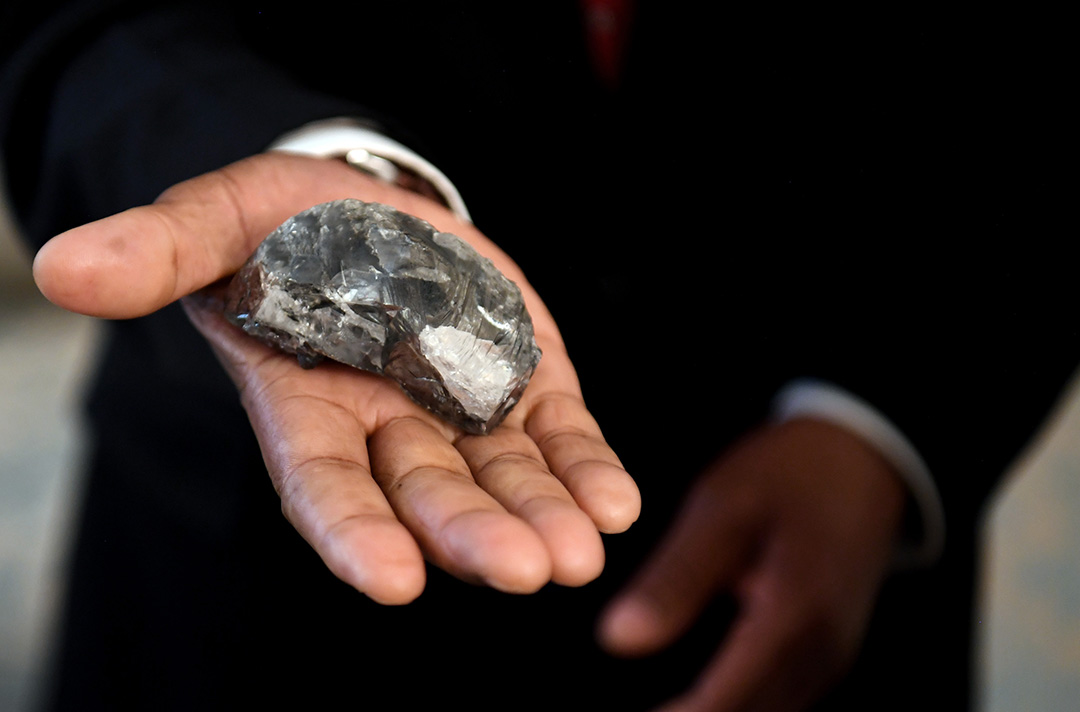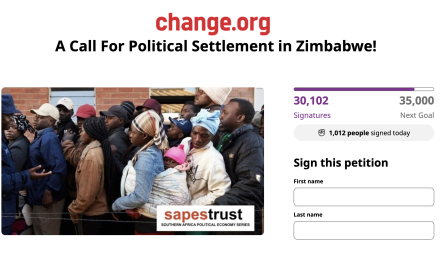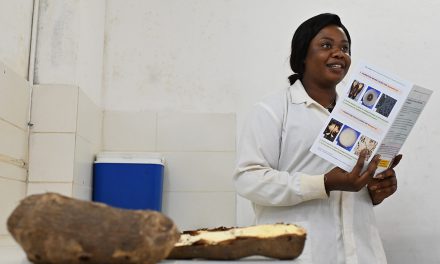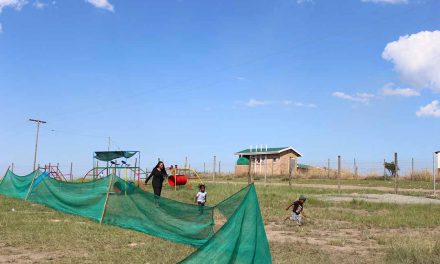The African continent has an abundance of minerals that could drive the just energy transition – if governments and investors get it right.
Last month, the South African delegation at the World Economic Forum affirmed that the country is ready to partner with the local and global community to boost investment opportunities that will yield economic development. Yet, the country faces a worsening energy and logistics crisis — resources critical for creating economic development, jobs, and sustainable growth.

A member of the Botswana cabinet holds a diamond in Gaborone, Botswana, on July 7, 2021.
The energy crisis has already caused significant damage to the country’s economy. Business Tech reported in July last year that economists estimated losses between R1.5 billion and R4 billion a day because small-to-medium enterprises were negatively affected by four to six hours of power cuts in a day. In light of this, 2023 GDP growth was recently forecast down to 0.3% from 1.1% in November 2022. The electricity supply problem has contributed to the unimpressive economic outlook and associated weakening investor confidence.
This backdrop unveils the stage where the international investment community has its eyes fixed on the annual Investing in African Mining Indaba, dedicated to the successful capitalisation and development of mining interests in Africa. The conference aims to connect African leaders, investors and mining companies to establish investment opportunities for economic and social development enabled by African mining sectors. The theme of this year’s Mining Indaba, in Cape Town from 6 to 9 February, is Unlocking African Mining Investment: Stability, Security and Supply to address issues that the extractive industry faces in the context of trying to achieve a just energy transition and reverse the resource curse.
Evidently, African resource-rich states continue to suffer — albeit to differing degrees — from the resource curse, a term coined by scholar Richard Auty in 1993 to illustrate the confounding nature of the relationship between natural resource abundance and under-development.
Since the early 1970s, there has been a strong correlation between natural resource wealth and poor development outcomes in resource-rich countries. Some of the key manifestations of the curse include corruption, widespread poverty, limited human development, weak institutions, undermined freedom of expression and little transparency and accountability.
In the context of climate change, which disproportionately affects low-income and developing countries, reversing the resource curse is more critical than ever. This can only be achieved by strengthening the institutional quality and sound natural resource governance mechanisms. Arguably the most important element of sound governance in this respect is to empower local people to play a key role in decisions pertaining to extraction projects in their ecosystems.
The conclusion of COP27, the 27th iteration of the United Nations Climate Change Conference, further cemented the need to bolster institutional quality and build strong resource governance mechanisms to adapt to climate change and ensure energy justice for all. Despite significant progress since 1990, more than 600 million people (nearly 60% of the continent) still don’t have electricity and this challenge must be prioritised and addressed by African governments. To reverse the resource curse and ensure energy justice for all Africans, radically improved environmental, social and governance (ESG) performance has become increasingly important.
At COP27, the Global North’s responsibility for climate change was not sufficiently recognised, while disunity among African leaders to proactively deal with climate change effectively remains unhelpful. African countries do face a double-edged sword, because those with fossil fuel resources remain adamant that these should be exploited for development gain, while doing so risks those countries being locked into development pathways that crowd out renewable energy opportunities.
To realise the latter, African countries such as Zambia, Mozambique and South Africa must unlock investment into exploring for, and extracting critical minerals required such as cobalt, lithium, copper, platinum group metals, manganese, chrome, and nickel, both for a global energy transition and to confront energy deficits at home. A combination of state-owned and multinational mining companies, such as Zambia Consolidated Copper Mines Investment Holdings, TotalEnergies and Anglo American in the respective countries have continued to show great interest in exploring and extracting critical minerals.
Unlocking this investment into African mining will require stability, security and responsible supply chains anchored on addressing environmental, social and governance risks in operating environments. Moreover, ESG integration has become the cornerstone of attracting investment and African governments should be geared towards creating a policy environment that champions genuine ESG performance in the mining sector and curtails greenwashing.
Reversing the resource curse
While the African continent is positioning itself to benefit from the green energy transition, the exploration and production of fossil fuels controversially remain central to the development trajectory of several developing countries such as South Africa, Zimbabwe, and Mozambique. Fitting with the Mining Indaba theme, Good Governance Africa (GGA) will present insights into mechanisms which may reverse the resource curse and enable sustainable and stable supply chains to meet a low-carbon future through an integrated ESG approach.
The GGA’s natural resource governance and human security and climate change programmes will present recent and ongoing research work in Zambia, South Africa, Zimbabwe and Mozambique. The work on Zambia explores the potential role of copper mining not only for cementing Zambia’s position in the critical minerals supply chain, but also for catalysing sustained industrialisation in that country. The work in Mozambique, Zimbabwe and South Africa addresses the question of how fossil fuel exploration and production affects climate change mitigation and adaptation efforts, and what effect it may have on existing resource curse dynamics. The overarching question is what justice means for different stakeholders when the world speaks of a just energy transition.
The GGA will lead a discussion on the sidelines of the Mining Indaba and emphasise the importance of mainstreaming ESG performance in critical mineral and fossil fuel exploration and production. Doing so will help to address the resource curse and contribute to stable supply chains for the global energy transition. The following themes will be discussed:
- The importance of building institutional capacity and robust resource governance mechanisms to reverse the resource curse;
- The role of meaningful consultation processes to achieve value for local people;
- The importance of stable mining regulatory environments and reliable tax regimes; and
- Streamlining mining and environmental legislation to effectively combat environmental, social and governance risks.
The global shift towards a green energy transition has put Africa in an opportune position to meet the global demand for critical raw materials required for moving away from hydrocarbon dependence and secure economic development. But this requires decisive leadership that prioritises energy security and socioeconomic development in a meaningful and sustainable manner that benefits all people.
- This article first appeared in the Mail & Guardian on 3 February 2023.
Busisipho Siyobi is the Programme Head of the Natural Resource Governance Programme at GGA. Prior to joining GGA, she headed up the Corporate Intelligence Monitor desk at S-RM Intelligence and Risk Consulting. Busisipho holds an MPhil in Public Policy and Administration from the University of Cape Town with a research focus on CSR within the South African mining industry. During her Masters, she worked as a research scholar at the South African Institute of International Affairs.







